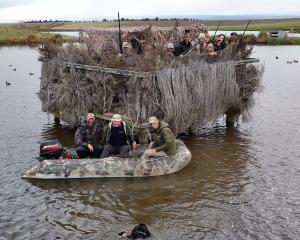While many southerners may be rubbing their hands together with glee at news that temperatures are "very likely" to be warmer than average over the next three months, others — namely skiers and snowboarders — may not be so pleased.
Niwa National Climate Centre forecasting principal scientist Chris Brandolino said weather patterns were in an Enso-neutral state, where neither El Nino nor La Nina conditions were present in the tropical Pacific Ocean.
That meant there would be fewer cooler winds from the south-to-southwest, and more warmer north-to-northwest winds.
He said the warmer-than-average ocean temperatures around the country at present, would contribute to that.
"That's important because as an island nation, basically, if our ocean temperatures are running warmer than average, it's really difficult to get any sustained cold snaps.
"Cold snaps can happen, but it makes it a lot more difficult."
On the West Coast, the Southern Alps and foothills, inland Otago, and Southland, temperatures were "very likely" to be above average over the next three months, he said.
Rainfall totals and soil moisture levels were about equally likely to be near normal or below normal, and river flows were most likely to be near normal.
In coastal Otago, temperatures were likely to be above average.
Rainfall totals, soil moisture levels and river flows were about equally likely to be near normal or above normal along the coast.
"I think people will probably notice that it's warmer than it should be in June, or it's warmer than it should be in July — that sort of thing.
"It doesn't mean it will be warmer every day.
"I think a factor in that is the overnight temperatures may be a little bit warmer than usual."
Mr Brandolino said an impact of the warmer airflows was there would be fewer frosts and less snow on the skifields.
"It probably doesn't bode well for skiers and snowboarders.
"As you go toward Queenstown and as you go toward the Main Divide itself and the western part of the South Island, there is a dry lean.
"So between the potential of a reduction of precipitation and the warmer-than-average temperatures, I think the odds of a really good snow year probably seems more unlikely, than likely."
The upside was lower power bills, he said.
"Maybe people will be able to run their heaters a bit less, or maybe less frequently."












